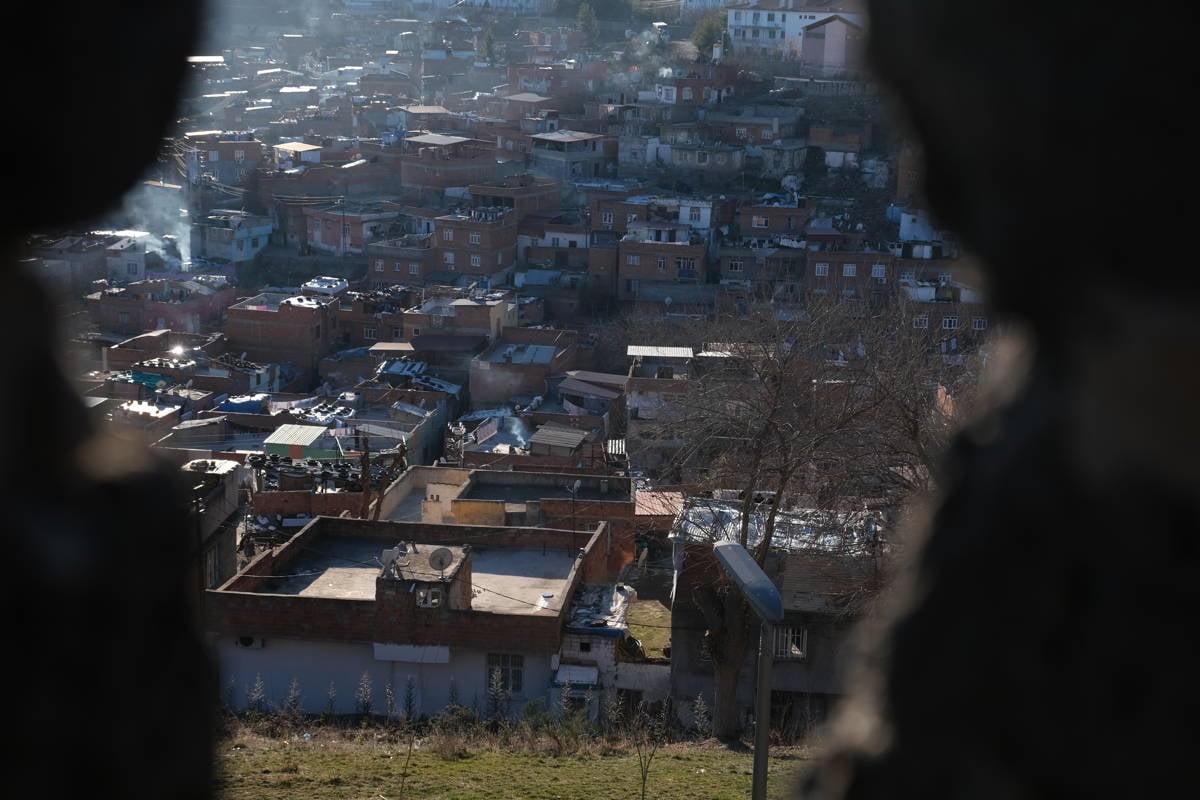What is ‘jin, jiyan, azadî’?

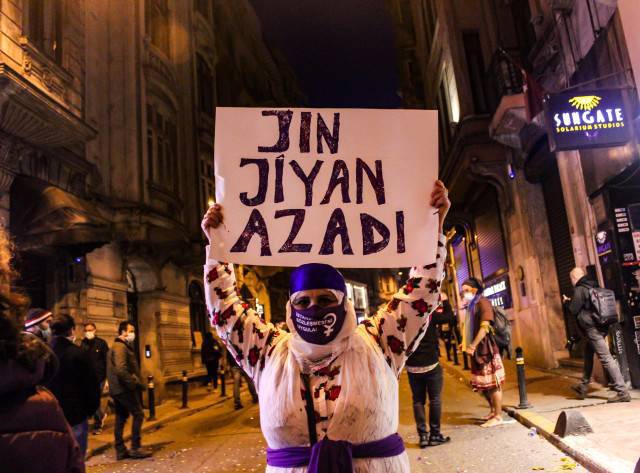
Jin, jiyan, azadî is a Kurdish slogan that translates to “women, life, freedom.” It is heard during women’s protests not only from Kurdish women but also from Turkish and refugee women, and has spread globally, from Iran to India, Chile to France, and beyond. However, it is being criminalized in Turkey as a slogan associated with “terrorism.” We spoke with leading Kurdish women politicians about the meaning and implications of “jin, jiyan, azadî.”
A slogan born in the streets
Sebahat Tuncel described jin, jiyan, azadî as a rallying cry of the Kurdish Women’s Movement. “This slogan was born spontaneously in the streets, not something thought up at a desk. This period was also a time when we were running campaigns against violence and femicide. In 2008, with the campaigns ‘We are women, we are no one’s honor’ and ‘Our honor is our freedom,’ we questioned the mindset behind honor killings of women. As women, we carried on our struggle for a free life in every aspect of our lives. In 2009, as part of the DÖKH (Democratic Free Women’s Movement), we continued the struggle with the campaign ‘Let’s create a democratic free society, let’s overcome the culture of rape.’ Later, during our campaign ‘No to Femicide!’, the slogan jin, jiyan, azadî became a key part of it.”
From Rojava to Iran
Tuncel emphasized several pivotal moments that led to the slogan spreading across the entire Middle Eastern region and being embraced by feminists worldwide.
“For example, we must remember that in 2019, during the Rojava revolution, women resisted with this slogan and were leading and founding figures. And in 2022, when women rose up and resisted after the killing of Jina Mahsa Amini in Iran, this slogan resonated across the globe, from India to many other countries. In this sense, jin, jiyan, azadî is an international slogan. Just like the workers’ call ‘Workers of the world, unite,’ this is the women’s call: ‘Women of the world, unite and change the male-dominated capitalist world.’”
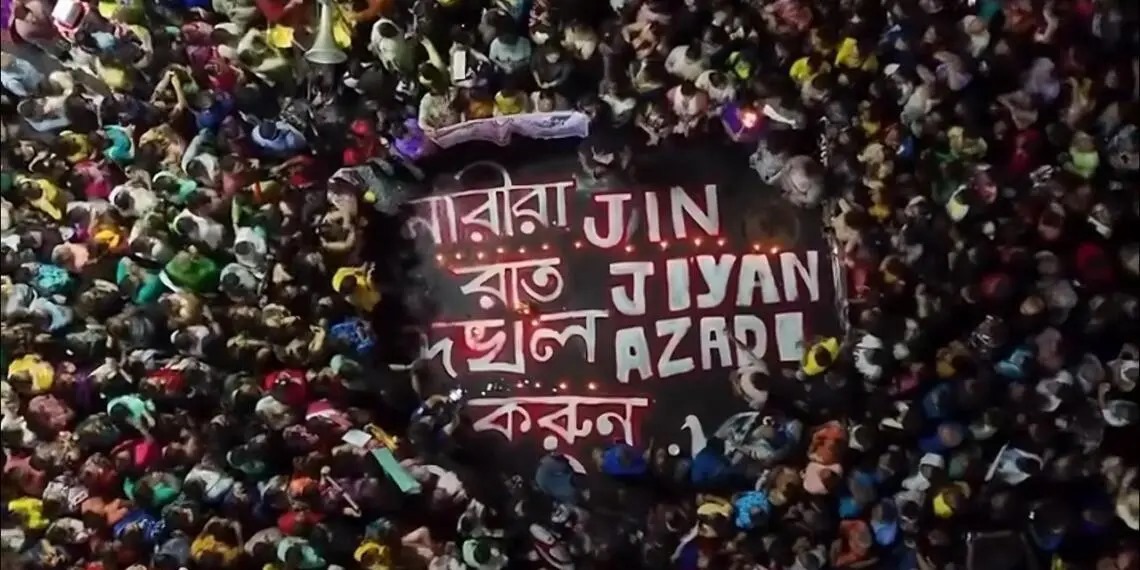
This call has found a response, and women across the world have begun to weave resistance and change life around jin, jiyan, azadî. The reason some circles have targeted this slogan is due to its unifying and transformative power. But we, as women, by coming together, raising women’s solidarity and the women’s freedom struggle, can build a life that is free from violence, exploitation, and one that is dignified and humane.”
Jin
Gültan Kışanak explains that the slogan jin, jiyan, azadî answers the question, "What kind of future do women want?" She says, "Jin, jiyan, azadî speaks of a future where there are women, life, and freedom. This is the kind of future we want to build because, within this male-dominated system, women do not truly exist. Women were confined to what was called the private sphere, excluded from the public sphere, politics, decision-making processes, and all the dynamic aspects of life. The private sphere, in essence, is a space of exclusion. There, women were only positioned according to how they served patriarchy. But once we brought women back into the public sphere, the presence of jin—the woman—on the streets became critically important. Women must be a part of life itself. If we desire a democratic and free future, women must be present—women must be in public life, in decision-making mechanisms. It’s not that women’s names were missing; rather, women themselves, as a dynamic force making up half of society, must be in a place where they can have a say in the present and future of society."
Jiyan
Kışanak continues, discussing jiyan—the term for “life”—which expresses women’s desire for life in an environment where femicides are rampant: "‘Life’ holds an immense meaning. It is a word that represents life itself and stands as a defiant stance against killings. When we defend women, we are also defending the right to live, the right to exist, and expressing a clear stance against the male-dominated mindset that threatens this right. In another sense, jiyan also points to this: the male-dominated system, as a whole, imposes death on all social dynamics. We see this manifested concretely in women’s bodies, in femicides, in the destruction of women, but in general, it’s a system that eradicates all centers of resistance and democratic ways of life—essentially killing life itself. Specifically, it defends the right of women to live, and in a broader sense, it insists that all democratic forms of resistance in society must remain alive, continue, and survive.”
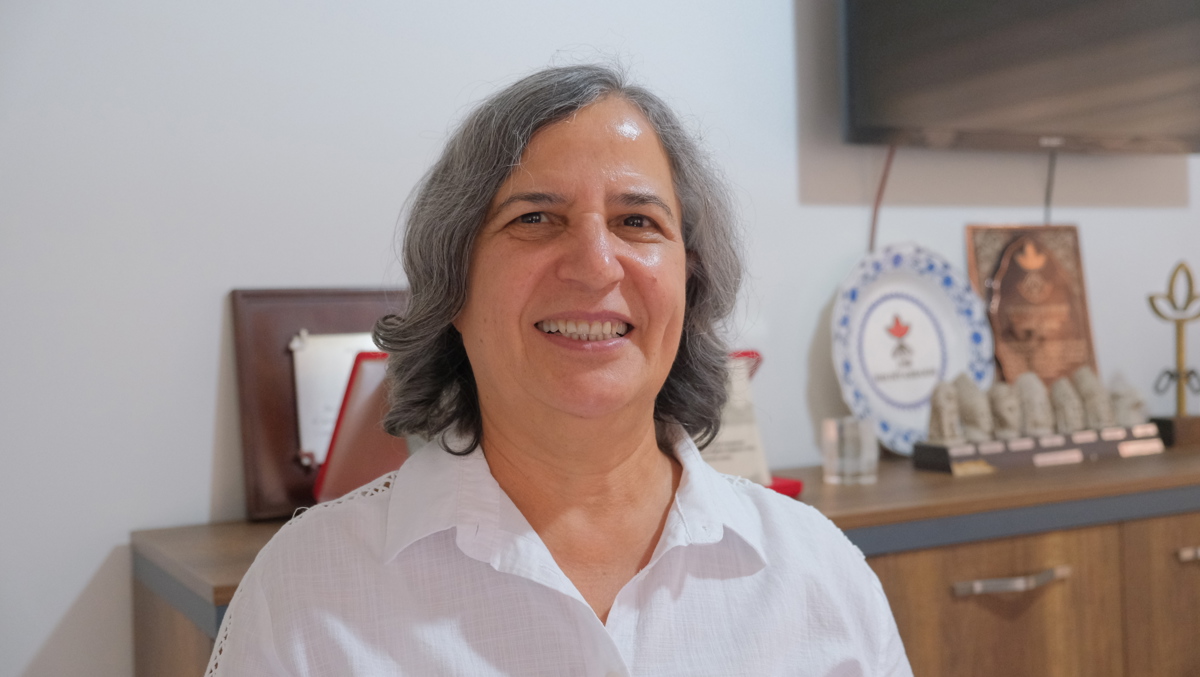
Azadî
Kışanak explains that for women to be fully part of life, azadî—freedom—is essential. She elaborates on the concept of freedom: “We know very well that where there is no freedom, there can be no life. The male-dominated system, above all, has killed freedom. In its place, it has constructed an authoritarian, patriarchal system. Today, it manifests as a state system, where an entire male state is built to dominate every aspect of life. That’s why, in a place where there is no freedom, we cannot speak of women, nor can we speak of life. These three elements are deeply interconnected. If we stand up for freedom, life, and women’s equal citizenship rights, and if we can develop a democratic mindset that accepts women as a dynamic force and subject of society, then we will have solved our problems. In every sense, jin, jiyan, azadî is unifying and inclusive."
'The effort to label it as terrorism is organized by the patriarchal mindset'
Ayla Akat expressed her concern over the fact that women chanting the jin, jiyan, azadî slogan are being accused of making “terrorist propaganda” and highlighted the following:
“Unfortunately, nothing in this country happens by coincidence. This effort serves the patriarchal mindset, which is wrong, dismissive, and capable of killing without hesitation when needed. The attempt to label it as terrorism is organized by this patriarchal mindset. For years, the nationalist and militarist perspective, which serves as the mortar for the wall built between the entire Turkish Women’s Movement—or at least some of its components—and us, draws its rhetoric and source from this same mentality. In Turkey, the political power’s polarizing policies, aimed at repressing and silencing opposition, also seek to break apart the common ground of the Women’s Movement by branding it as 'terrorist propaganda.'
In this situation, every component of the Turkish Women’s Movement, which leads the women's freedom struggle, should feel responsible and take ownership of the words and actions necessary to foil this plan. When the essence of the struggle is what matters, prioritizing identity or affiliation and drifting away from the common ground only serves a particular system or ideology—and it’s clear which one.”
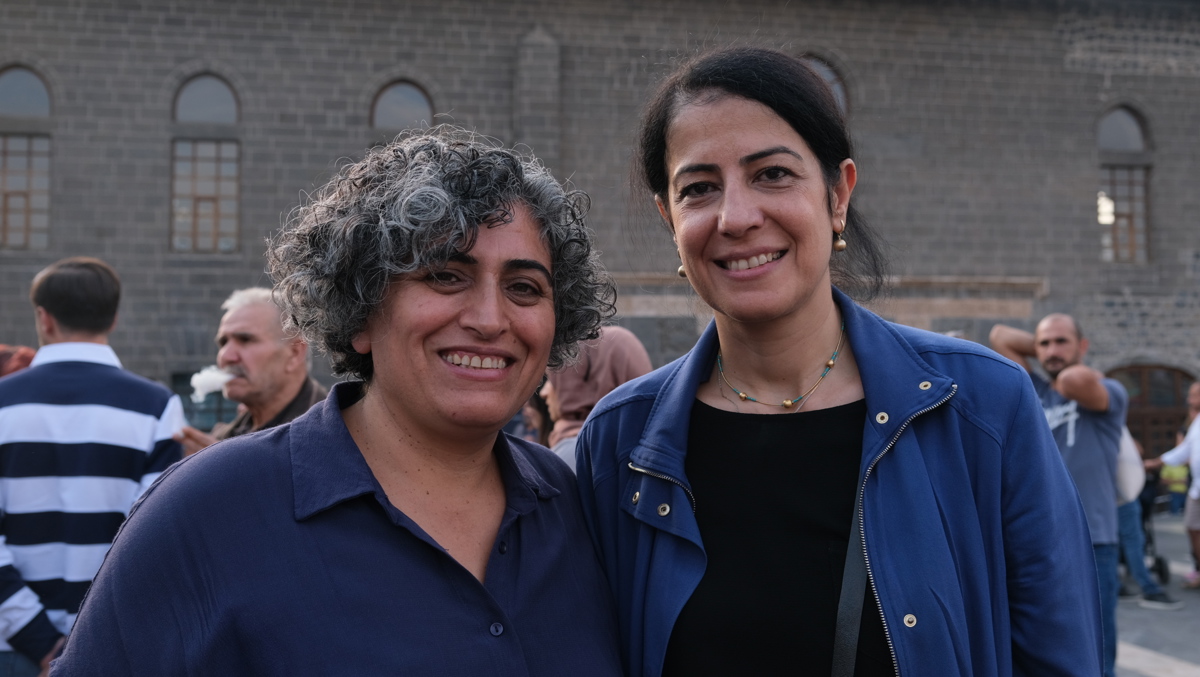
'Once again, our rallying cry will be jin, jiyan, azadî'
Ayla Akat reminded us that the 21st century is one in which women are stronger together through solidarity and continued:
"This century is recognized as a time when women come together on common grounds of struggle, armed with the knowledge that they have much to learn from each other’s experiences. It is also considered a century of rebuilding alongside this struggle. Kurdish women, by saying Me Too, Ni Una Menos ('Not One Woman Less'), and You Will Never Walk Alone, have drawn strength from their sisters around the world and have amplified that power with the slogan jin, jiyan, azadî.
The effort to label it as terrorism will fail as long as we establish our solidarity on strong foundations. I’d like to share a memory here. In 2016, I attended the AWID International Forum. At the closing, 2,500 women attending the forum chanted jin, jiyan, azadî, women, life, freedom as they left. It was incredibly exciting for me. With this shared experience, I firmly believe we can overcome the meaningless barriers placed before us as part of the Turkish Women’s Movement. Once again, our rallying cry will be jin, jiyan, azadî.” (ED/VK)
Kurds celebrate Newroz in Diyarbakır with massive attendance
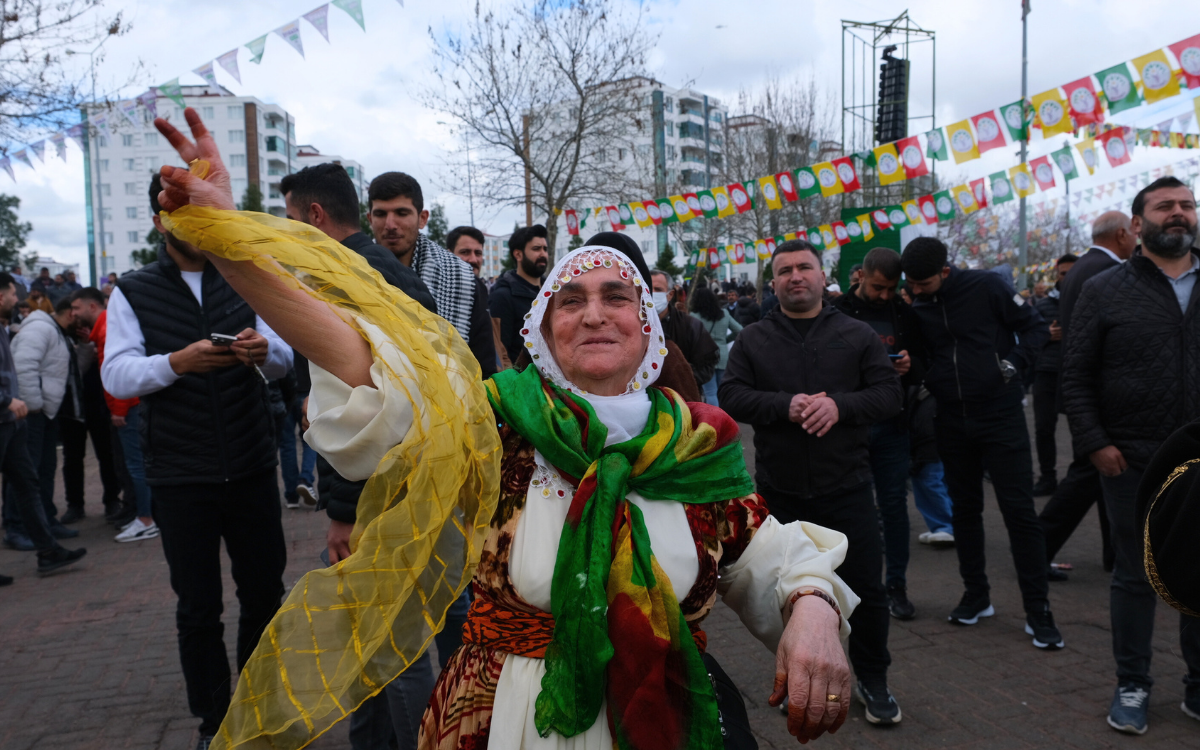
Q&A with Salih Muslim on Syrian Kurds' deal with Damascus: 'We'll not give up our gains'
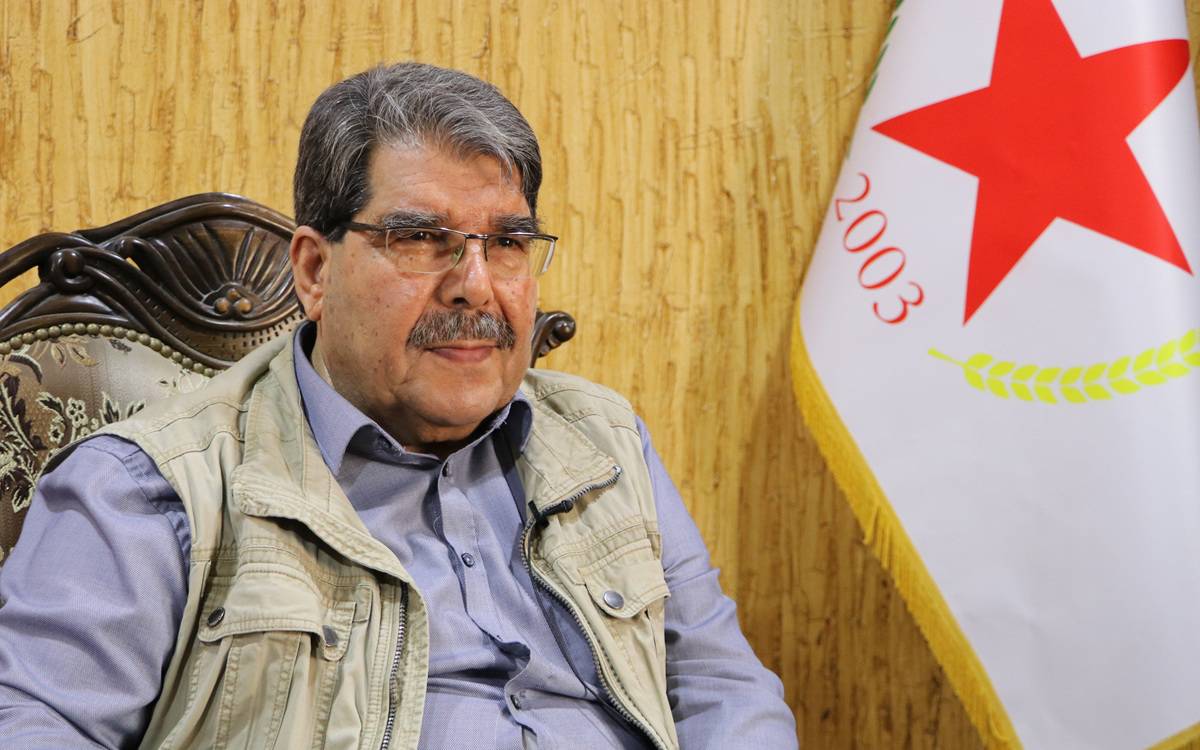
Women's Day marked in Diyarbakır with message from Öcalan

BEHIND THE CURTAIN: FİSKAYA
Besra's home

BEHIND THE CURTAIN: BENUSEN
Yeliz's home
